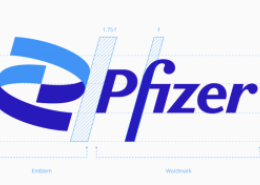Pharma Completes Patient Recruitment Of Recombinant Human Alkaline Phosphatase (Recap) Phase II Trial In Acute Kidney Injury
Recruitment of 301 patients in STOP‐AKI adaptive Phase II trial marks largest ever therapeutic study in AKI
Bunnik, The Netherlands, 22 May 2017. AM‐Pharma B.V., a biopharmaceutical company focused on the development of recombinant human Alkaline Phosphatase (reCAP) for inflammatory diseases, announced completion of recruitment in the adaptive Phase II trial to treat sepsis patients with Acute Kidney Injury (AKI). The trial, titled A Safety, Tolerability, Efficacy and QoL Study of Human recAP in the Treatment of Patients With SA‐AKI (STOP‐AKI), completed recruitment with 301 patients, which makes it the largest interventional clinical study in AKI to date.
The STOP‐AKI adaptive Phase II trial is being conducted in two parts. First, data from 131 patients were evaluated to select the most effective dose of recAP. Second, an additional 170 patients were recruited into two arms, receiving either the optimal dose of recAP identified initially, or placebo. The study was conducted in more than 50 intensive care units (ICU) in Western Europe and North America.
Erik van den Berg, CEO of AM‐Pharma said: “We are pleased to announce that we have enrolled the last patient in the STOP‐AKI trial. I would like to express my appreciation to all staff in the investigating ICUs for their dedication and diligence in supporting the trial. We will now enter a new and exciting phase of patient follow‐up, data analysis and discussions with our scientific advisors. We anticipate publishing and
presenting results from the trial in early 2018.”
In May 2015, Pfizer Inc. (NYSE:PFE) acquired a minority equity interest in AM‐Pharma and secured an exclusive option to acquire the remaining equity in the company. The option becomes exercisable upon completion of the STOP‐AKI trial.
In April 2016, AM‐Pharma received fast track designation from the U.S. Food and Drug Administration (FDA) for recAP in the treatment of AKI. The fast track designation facilitates the development and expedites the review process of drugs designed to treat severe conditions with unmet medical need.1 This status also enables a continuous dialogue with the FDA around the clinical and regulatory development of recAP.
Company contact:
AM‐Pharma
Erik van den Berg (CEO)
+31 30 259 8838
Media contact:
80th Atom
Adam Michael
+44 1223 511338
+44 777 588 1813
Adam@80thAtom.com
Notes to Editors
About AM‐Pharma www.am‐pharma.com
AM‐Pharma is a biopharmaceutical company focused on the preclinical and clinical development of recAP (recombinant Human Alkaline Phosphatase) as a treatment of Acute Kidney Injury (AKI), Ulcerative Colitis (UC), and Hypophosphatasia (HPP). Based on strong results from Phase II trials with bovine Alkaline Phosphatase in AKI and UC, AM‐Pharma developed an innovative recombinant form of human Alkaline Phosphatase (recAP), and has completed recruitment of 301 patients in the STOP‐AKI adaptive Phase II trial
for sepsis‐associated AKI. In May 2015, AM‐Pharma entered an agreement with Pfizer. Under the terms of the agreement, Pfizer made an upfront payment of $87.5 million for a minority equity interest, and obtained an exclusive option to acquire the Company, with additional potential payments of up to $512.5 million upon option exercise and potential launch of any product that may result from the agreement.
About Acute Kidney Injury
Acute Kidney Injury (AKI) involves inflammatory processes in the kidney which can lead to complete loss of renal function. Hospital‐acquired AKI affects annually around 3 million patients in Europe, the US and Japan, and is associated with mortality in roughly 700,000 patients. It occurs in as many as 4% of hospital admissions and 40% of critical care admissions. Depending on the severity and cause of renal injury, mortality ranges from 10% to as high as 70%. In the US alone, hospitals spend around $10 billion each year on managing this major medical problem. The most important causes of AKI are sepsis, cardiovascular surgery, exposure to nephrotoxic drugs and trauma. AKI patients that need dialysis have the worst prognosis. Currently the only treatment option is dialysis and supportive care. No drugs are approved to treat this condition. Typically these patients are treated in Intensive Care Units, often with support of nephrologists.2,3,4
About recAP
AM‐Pharma’s therapeutic candidate, recAP (recombinant Alkaline Phosphatase), is a proprietary recombinant human AP constructed from two naturally occurring human isoforms of the AP enzyme, which is highly stable and active. It is in Phase II development for the potential treatment of AKI, with the potential to be developed for HPP. An oral formulation has been developed for the treatment of UC. The enzyme is produced by cGMP manufacture for preclinical and clinical trial supply and commercialization.
- U.S. Food and Drug Administration; available at http://www.fda.gov/ForPatients/Approvals/Fast/ucm405399.htm
- Murugan R. and Kellum J.A., (2011) Nat Rev Nephrol. Vol 7: 209-217
- Heung M. and Chawla L., (2014) Nephron Clin Pract. Vol 127: 30-34
- Chertow et al., (2005) J Am Soc Nephrol. Vol 16: 3365-3370
-ENDS-








